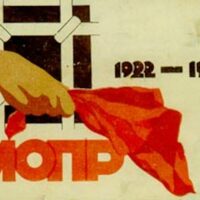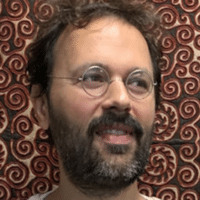-
Under the influence of Lewontin: Volume Two
Friends and colleagues of Dick Lewontin are sharing their stories and reflections.
-
Richard Lewontin: Race science for the people
We can now say with great confidence that our species, anatomically modern humans, does not have biological races. We know this in large part due to the contributions of Richard C. Lewontin.
-
The documentary ‘Her Socialist Smile’ explores a different side of Helen Keller
Helen Keller (1880-1968) was one of the most inspirational figures of the 20th century. But most people know the writer and activist for her determination to overcome the barriers facing people with physical disabilities in her lifetime, not for her equally fierce determination to replace American capitalism with a system in which the workers control the means of production.
-
The Uncontrollability of Globalizing Capital
We live in an age of unprecedented historical crisis. Its severity can be gauged by the fact that we are not facing a more or less extensive cyclic crisis of capitalism as experienced in the past, but the deepening structural crisis of the capital system itself.
-
International Red Aid 1922–1937: Uniting to defend class war prisoners
The initiative came from Polish Communists seeking to aid compatriots jailed or forced into exile in the Soviet republic.
-
Neo-Liberalism and the extreme Right
Georgi Dimitrov, president of the Communist International, had, at its Seventh Congress, characterised a fascist State as the “open terrorist dictatorship of the most reactionary section of finance capital”
-
Richard Lewontin, dialectical biologist and activist, dies at 92
A Marxist, activist and scientist, Lewontin fought a lifelong battle against racism, imperialism and capitalist oppression. He is among the most influential scientists in the field of biology and evolution.
-
York professor expands global understanding of Karl Marx and Marxism with seven books in three years
Driven and passionate about the significance of Marx’s contributions in politics, sociology, the critique of political economy and philosophy, Musto has delivered seven books within the last three years.
-
Richard Lewontin: the dialectical biologist (1929-2021)
Rare among scientists, Lewontin’s science and politics were guided by a conscious philosophical outlook, which he staunchly and unapologetically defended throughout his life.
-
The working-class voices publishing against the grain
Luke Charnley reports on the new publishing houses getting working-class writers onto the printed page.
-
Critique of the misunderstanding concerning Marx’s base-superstructure spatial metaphor
I think Marx offers us blue and red for us to make purple, indubitably the most beautiful color keeping with Plato. In essence, both misunderstandings are partly correct–the economic foundation determines the superstructure, but the superstructure can also influence the economic foundation.
-
Lefebvre and Althusser: Reinterpreting Marxist Humanism and Anti-Humanism
Since the October Revolution, Marxism has experienced almost as many crises as capitalism itself. Meltdowns of capitalism usually come as little surprise to savvy Marxist theorists but economic crises are one thing; economic crisis plus a global pandemic is something else again, beyond an everyday capitalist norm, more akin to the political-economy of wartime. Pandemic, like war, threatens not only life and limb, but also solidarity and tender acts of human togetherness.
-
Samir Amin – a Marxist with blood in his veins
Following the publication of the special issue on Samir Amin, we post short interviews by the authors on the influence of Amin on their lives and research.
-
“I felt an urgency the publishing industry did not share”: Michael Mark Cohen and cartooning capitalism
I spent a tremendous amount of time digging around in old socialist and union newspapers, journals, magazines and pamphlets where I expected to read the work of earnest revolutionaries discussing socialist strategy and news from the latest strikes around the world. Of course, I found all that and more. – Michael Mark Cohen
-
Cornel West: Palestine is a “taboo issue among certain circles in high places”
Activist and scholar says he is being denied tenure at Harvard University because of his views on Israeli occupation.
-
Philosophy and Technology: A Perspective from Health Care and Law
The philosophical understanding of technology historically presents a pendular characteristic, swinging between enthusiasm and fear. The control of nature, the creation of artifacts that substitute what is naturally given, and the liberating while subjugating power of technology all give rise to enchantment and apprehension, which impact the philosophical horizon.
-
Joe Biden’s victory is still a loss for humanity
The Biden-Harris administration is good news for corporations, cops, war profiteers and banks too big to fail, but offers nothing to save the people and planet from multiple rises.
-
An old fable retold
A rumour has reached us that while there were doubts as to the sauce to be used in the serving up, slow stewing was settled on as the least revolutionary form of cookery.
-
Engels and marriage
Friedrich Engels, whose 200th birthday falls on 28 November, had a very personal connection with Ireland. Soon after being sent to help run the family textile factory in Manchester in 1842 he met twenty-year-old Mary Burns, daughter of an Irish dyer.
-
1987: Ernest Mandel – On the potential of history
For a materialist conception of history, it is necessary to understand that the world cannot be consciously changed without understanding it correctly.




















